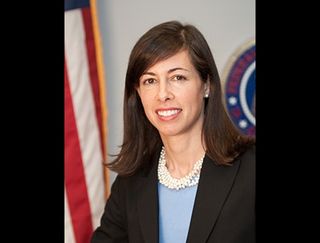Wheeler’s Set-Top Plan Appears to Be in Trouble

It became clear last week that FCC chairman Tom Wheeler does not have the votes to pass his set-top box reform, at least as originally proposed.
That proposal has been taking shots from all sides, including now from both the Senate majority and minority leaders. But last week saw an even clearer signal coming from one of the three votes he will need that there are problems.
The proposal is to require multichannel video programming distributors to make their program and data streams available to third-party devices and app developers to promote competitive alternatives, including wedding traditional and over-the-top content.
Wheeler has said from the outset that he was willing to tweak it if there was a better route to his goal of a competitive market in third-party video access devices, ideally one that allows for access to traditional video and the OTT video he sees as a key new competitor.
But cable operators were unconvinced, saying they feared that was more talk than action and that the item would pass pretty much as proposed.
That no longer appears to be the case. Even though the proposal was approved on a straight party line vote 3-2, Democratic commissioner Jessica Rosenworcel—who voted with the majority—indicated from the outset that she had issues with it.
Rosenworcel said last week she is still optimistic that the FCC and industry can find a way forward on set-tops to promote a competitive marketplace in navigation devices, but signaled that the problems have become clear, as has the need for changes.
Broadcasting & Cable Newsletter
The smarter way to stay on top of broadcasting and cable industry. Sign up below
Rosenworcel was responding to a flurry of activity that surrounded the proposal, including efforts to block it in Congress via an appropriations bill, a National Cable & Telecommunications Association-backed “ditch the box” branded alternative to the chairman’s “unlock the box” proposal, and the Motion Picture Association of America’s support for working with the FCC to resolve copyright issues.
“Set-top boxes are clunky and costly,” she said in a statement provided to B&C. “Consumers don’t like them and they don’t like paying for them,” she added. “Kudos to the chairman for kicking off this conversation [Rosenworcel voted along with Wheeler and Democrat Mignon Clyburn to do just that], but it has become clear the original proposal has real flaws and, as I have suggested before, is too complicated. We need to find another way forward.”
She was not endorsing the cable effort, but was supporting the determination to find some variant of compromise proposal that addresses the flaws.
“I am glad that efforts are underway to hash out alternatives that provide consumers with more choice and more competition at lower cost,” she said.
Rosenworcel voted to approve the notice of proposed rulemaking (NPRM) recommending the set-top unbundling, but has continued to suggest it was a work in progress that needed more time and effort.
The set-top plan suffered another blow when Sen. Harry Reid, the Democratic Majority Leader, wrote Wheeler last week to say he thought the proposal did not sufficiently protect programmer contracts or consumer privacy, an argument MVPDs have been making pointedly.
Asked whether the set-top proposal was in trouble, FCC press secretary Kim Hart responded: “Chairman Wheeler has repeatedly said he is interested in a constructive dialogue with his FCC colleagues and all stakeholders to reach the best result for consumers. He welcomes the feedback to his proposal to give consumers new options for accessing the content they pay for, and he looks forward to engaging in continued conversations to inform the final rules.”
Google, which pushed the set-top proposal, echoed Wheeler in calling the cable op alternative “a constructive effort towards the goal of more competition and consumer choice,” adding, “We hope that it sparks a dialogue between the FCC and interested parties to reach a good outcome for American viewers.”
One MVPD exec suggested recent developments were more than just additional dialogue.
“I’ll let you determine whether chairman Wheeler’s proposal is dead,” said the exec, who requested anonymity. “But, Google is now giving up the fight, Sen. Reid’s letter was pretty strong, and commissioner Rosenworcel from the get-go called it too complicated and recently said it has real flaws.”
Contributing editor John Eggerton has been an editor and/or writer on media regulation, legislation and policy for over four decades, including covering the FCC, FTC, Congress, the major media trade associations, and the federal courts. In addition to Multichannel News and Broadcasting + Cable, his work has appeared in Radio World, TV Technology, TV Fax, This Week in Consumer Electronics, Variety and the Encyclopedia Britannica.

